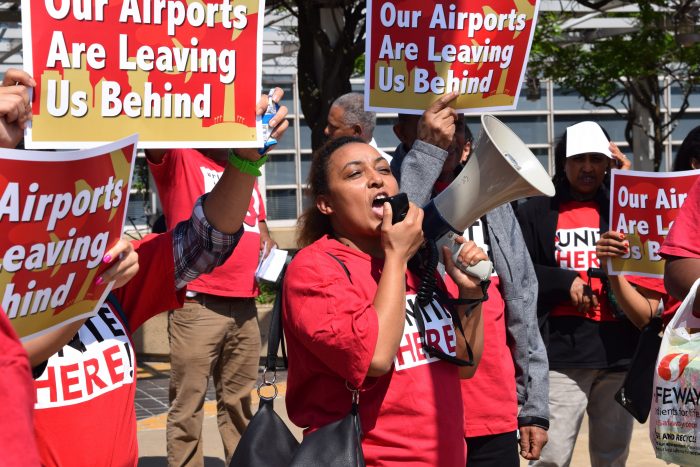Join a union to make less than minimum wage? In a California lawsuit, a former waiter is claiming that he was underpaid under San Jose’s minimum wage ordinance. His former union, however, is siding with the company and saying it’s what the contract allows.

A former waiter in San Jose, California is suing his former employer, Marriott, claiming that he was paid lower than the minimum wage under San Jose’s local minimum wage ordinance.
The company, in its defense, claims that it is not required to pay the minimum wage under its collective bargaining agreement with a union, Local 19 of UNITE-HERE.
In an odd twist, however, UNITE-HERE is siding with the company. Here’s why:
McCray was part of a labor union for hotel workers called Unite Here Local 19. Unite Here ended up filing an amicus brief in the pending appeal, arguing that employers and employees could, in fact, negotiate to opt-out of the local San Jose wage ordinance. And the ability to opt out, they argued, is not just limited to San Jose—unions have the option to waive local minimum-wage ordinances throughout California. According to the union, this ability is part of a historical tradition, and nothing new, not only in California but across the United States. [Emphasis added.]
That a union would negotiate contracts that give employers the ability to pay less than the legally-mandated minimum wages is one of the more recent developments with today’s unions.
All-too-often unions will use exemptions in local or state minimum wage ordinances as a way to entice employers into unionizing.
In 2016, members of UNITE-HERE were outraged when their union carved an exemption into the area’s minimum wage ordinance for hotel workers.
“That’s what really makes me mad,” Bill Martinez, a 53-year old hotel worker, stated. “I just wanted to be treated equal. Don’t exempt us, because we’re the ones paying union dues.”
As the Los Angeles Times noted at the time:
Counterintuitive at first glance — organized labor’s historic goal has been to obtain more for workers, not less — union exemptions are absent from state and federal pay standards. Yet they have been written into the fine print of wage ordinances in a dozen California cities at labor leaders’ urging.
San Francisco, San Jose, Oakland and Santa Monica have all adopted union waivers in their most recent minimum wage laws.
In 2016, the U.S. Chamber of Commerce issued a report [in PDF] detailing some of the union “exemptions” to higher minimum wage ordinances stating:
This “escape clause” is often designed to encourage unionization by making a labor union the potential “low-cost” alternative to new wage mandates, and it raises serious questions about whom these minimum wage laws are actually intended to benefit.
If the court’s rule against McCray and others like him, it will be clearer than ever.
Union “escape clauses” are not to benefit workers, but the unions.





